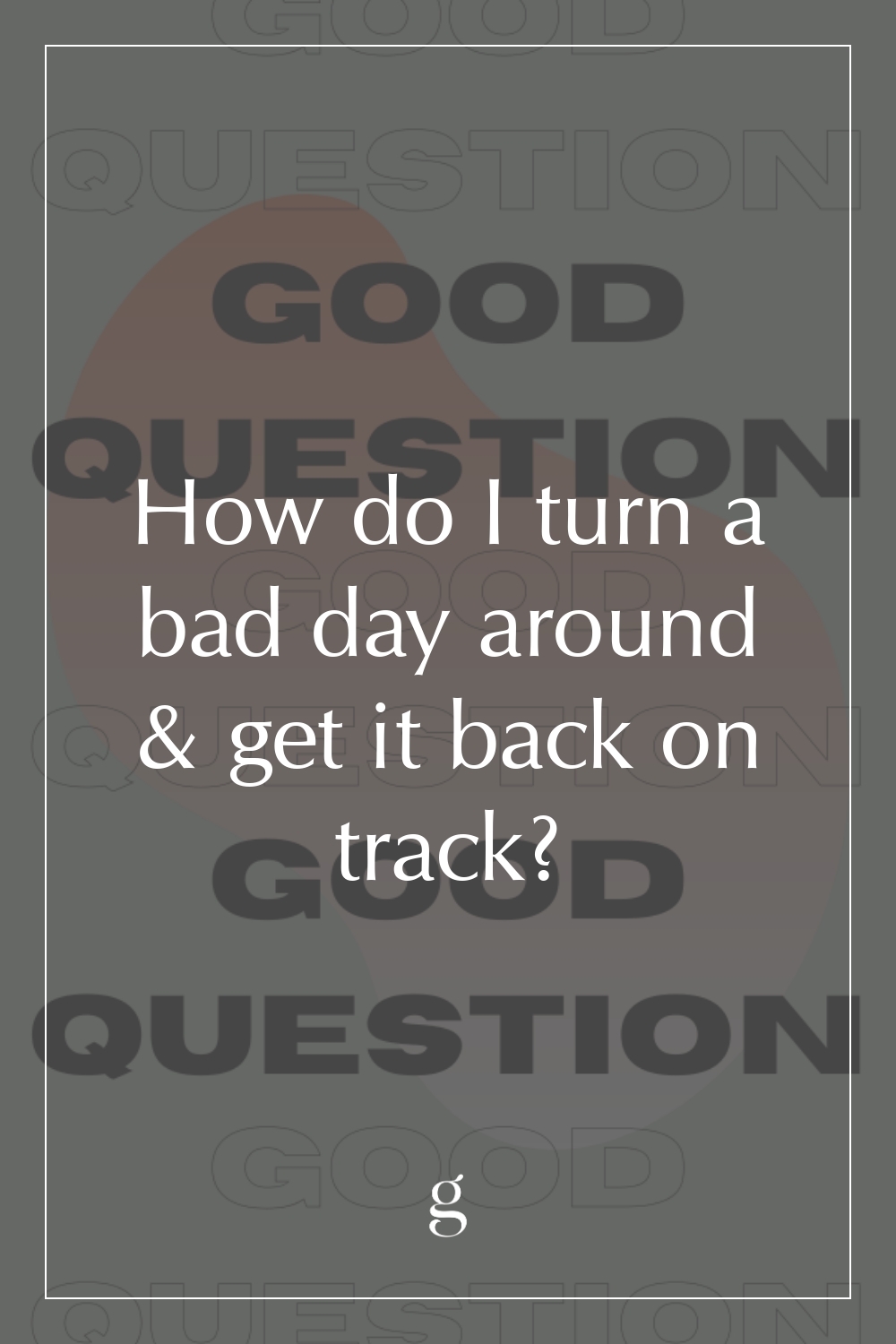
How do I turn a bad day around & get it back on track?
Welcome to our advice column where our editors offer thoughtful answers to your pressing inquiries. Head here to submit an anonymous question, and follow here for new Good Questions.✨
How do I turn a bad day around and get it back on track?
This question cuts right to the heart of something I’ve been working on for years. In fact, in an old spiral-bound notebook somewhere in my apartment, there’s a list from 2015 called my “Make A Bad Day Better” list. I had scrawled it in hopes that I’d keep it on hand for those very moments that I felt myself slipping into bad day territory. But while “make a list” will be my first advice to you, know that it may not, on its own, be enough.
Before we dive in, it’s important to note that bad days are normal! There’s no point in harshly judging ourselves for having a tough time. Sometimes life is just hard, and it’s okay to accept that today was a bad one—with hope and optimism that tomorrow will be better.
“List the activities that most often make you feel better. Think of your most basic human needs and skip fleeting highs.”
To create a remedy for your next bad day, start by listing out the activities that most often make you feel better (I usually find that snacking, showering, or going outside are instant mood lifters). Think here of your most basic human needs, as you would for a child, and skip fleeting highs like online shopping or reaching for an alcoholic drink. Then when you’ve reached the depths of a bad day, work your way through this list until you feel a little better. At the end of the list is something like “just go to bed,” which may not be an option if the bad day starts early, but I like to keep it in mind.
Apart from list-making, I’ve found it beneficial to keep track of what exactly sets my day on the path to “badness.” You can do this, too, by keeping a journal and noting, in as much detail as you can, what turned the day sour. Examine your patterns—are they connected to a menstrual cycle or to a lack of sleep? Do your bad days center on stressful phone calls or certain deadlines at work? In my experience, it’s just as much about finding proactive solutions for the bad days as it is about finding ways to cope with them.
“Examine your patterns—are they connected to a menstrual cycle, a lack of sleep, or certain deadlines at work?”
And now, I’ll let you in on a little secret: mental health support is everything. If you’re experiencing a lot of bad days and have a difficult time getting control back, you might consider looking into therapy or talking through your experience with a doctor or psychiatrist. A bad day spiraling out of control happens to everyone occasionally, but it’s worth speaking to a professional if it’s happening all the time. You might learn about some new techniques to delay your own negative responses to challenges and be able to explore more tools for self-management.
“A bad day spiraling out of control happens to everyone occasionally, but it’s worth speaking to a professional if it’s happening all the time.”
But you can start where you’re at, right now. You know what’s best for you, so listen to your gut! Sometimes our brain overrides our intuitive self in the name of productivity, so we have to be intentional about listening to what our bodies are telling us. And sometimes it can feel like we don’t *deserve* to have a better day. You deserve to have good days.
Finally, remember: we can’t control the things around us, but we can become more mindful about how we respond to them. I’m sending you all the best wishes for a good day today, and take care! 💛
Read more Good Questions here.
Have something on your mind? Click the button below 👇 ✨
RELATED READING
Emily Torres is the Managing Editor at The Good Trade. She’s a Los Angeles transplant who was born and raised in Indiana, where she studied Creative Writing and Business at Indiana University. You can usually find her reading or writing, caring for her rabbits, or practicing at the yoga studio. Say hi on Instagram!


